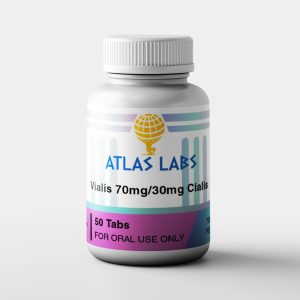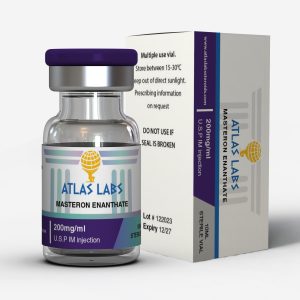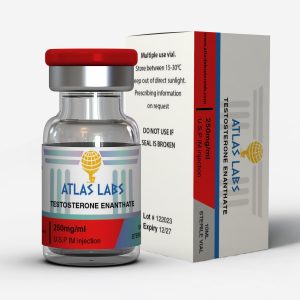How to Recover Your Natural Testosterone After Steroids
One of the most important yet overlooked topics for anyone using anabolic steroids is recovery of natural testosterone production. Steroids suppress your body’s ability to produce testosterone naturally, which can lead to low energy, poor libido, muscle loss, and other long-term health issues if not addressed.
Whether you’ve finished a short cycle or a long, multi-steroid regimen, knowing how to safely restore your hormonal balance is critical. This guide explains the science behind post-cycle recovery, what strategies work, and how to protect your health after steroid use.
Why Natural Testosterone Drops After Steroids
Anabolic steroids are synthetic derivatives of testosterone. When you introduce exogenous (external) testosterone into your body, your hypothalamic-pituitary-gonadal (HPG) axis senses high hormone levels. As a result:
- The hypothalamus reduces GnRH (gonadotropin-releasing hormone) production.
- The pituitary decreases LH (luteinizing hormone) and FSH (follicle-stimulating hormone) release.
- The testes stop producing testosterone naturally.
This process is called HPTA suppression. Depending on the type of steroids, dosage, and cycle length, suppression can be temporary or severe. If left unaddressed, it can take months—or even years—for testosterone to fully recover.
The Timeline for Recovery
Recovery is not instant. While some users see a partial rebound in 2–4 weeks, full recovery can take longer:
- Short cycles (4–6 weeks, low dose): 4–8 weeks to restore baseline testosterone.
- Moderate cycles (8–12 weeks): 2–3 months for significant recovery.
- Long or high-dose cycles: 6–12 months, sometimes longer, depending on individual health and age.
Factors affecting recovery include:
- Age (older men recover slower)
- Genetics (some naturally produce more testosterone)
- Liver and kidney health
- Lifestyle factors (diet, sleep, exercise)
Understanding this timeline helps set realistic expectations and reduces panic when symptoms of low testosterone appear.
Signs Your Testosterone Is Still Low Post-Cycle
Even after stopping steroids, you might notice lingering low testosterone symptoms:
- Low libido or erectile dysfunction
- Fatigue and decreased motivation
- Mood swings, irritability, or depression
- Loss of muscle mass or strength
- Increased fat accumulation, particularly around the abdomen
- Brain fog or difficulty concentrating
These symptoms indicate that post-cycle recovery is still in progress and require proactive intervention.
Post-Cycle Therapy (PCT) Explained
Post-cycle therapy (PCT) is the cornerstone of natural testosterone recovery. PCT usually involves medications that stimulate the HPTA, signaling your body to resume endogenous testosterone production.
Common PCT compounds include:
- Selective Estrogen Receptor Modulators (SERMs)
- Examples: Clomid (Clomiphene), Nolvadex (Tamoxifen)
- How they work: Block estrogen receptors in the hypothalamus and pituitary, increasing LH and FSH, which stimulates natural testosterone production.
- Human Chorionic Gonadotropin (HCG)
- How it works: Mimics LH, directly stimulating the testes to produce testosterone.
- Often used during or immediately after a cycle, especially with longer ester testosterone or heavy suppression.
- Aromatase Inhibitors (AIs)
- Examples: Arimidex (Anastrozole), Aromasin (Exemestane)
- How they work: Prevent excess estrogen buildup, which can inhibit HPTA recovery if left unmanaged.
The timing and dosing of PCT are crucial. Starting too early or too late can reduce effectiveness. Most experienced users begin PCT 1–3 weeks after their last injection for short esters and 2–4 weeks for long esters.
Lifestyle Strategies to Support Testosterone Recovery
While medications help jumpstart recovery, lifestyle factors play a huge role in restoring hormonal balance naturally.
- Prioritize Sleep
- Deep sleep is when most testosterone is produced. Aim for 7–9 hours of quality sleep per night.
- Strength Training
- Resistance exercise boosts testosterone and growth hormone naturally. Focus on compound lifts like squats, deadlifts, and bench presses.
- Nutrition Matters
- Eat sufficient protein to maintain muscle mass.
- Include healthy fats (avocados, olive oil, fatty fish) to support hormone production.
- Avoid processed foods and excessive sugar, which can suppress testosterone.
- Manage Stress
- Chronic stress raises cortisol, which can further reduce testosterone. Techniques like meditation, walking, or light cardio can help.
- Supplements (optional, evidence-based)
- Vitamin D3
- Zinc and magnesium
- Omega-3 fatty acids
- D-Aspartic Acid (some evidence for stimulating LH)
In addition, maintaining a healthy body composition accelerates hormonal recovery. Fat cells convert testosterone to estrogen, so excessive body fat can slow down your PCT results.
When to Seek Medical Help
Even with proper PCT, some users experience prolonged low testosterone. Medical intervention may be necessary if:
- Symptoms persist beyond 6–12 weeks post-cycle
- Blood tests confirm testosterone remains below the normal range
- Mood disturbances, fatigue, or sexual dysfunction severely impact daily life
In these cases, a hormone specialist or endocrinologist can assess whether temporary TRT or other interventions are warranted. Self-medicating beyond standard PCT is not recommended, as improper dosing can cause long-term suppression or side effects.
Monitoring Recovery With Blood Work
Regular blood testing is essential to track your progress. Common markers include:
- Total and Free Testosterone
- LH and FSH levels
- Estradiol
- SHBG (sex hormone-binding globulin)
- Prolactin
Monitoring allows you to see if PCT is working and whether adjustments are needed. It also ensures you aren’t putting unnecessary stress on your liver or other organs.
Preventing Long-Term Suppression
The best way to avoid prolonged testosterone suppression is planning cycles responsibly:
- Keep cycles moderate in length and dosage
- Avoid stacking multiple high-potency compounds too frequently
- Incorporate regular off-cycle periods to allow natural recovery
- Don’t neglect PCT or attempt “shortcut” protocols
By respecting your body’s hormonal balance, you can maintain gains without jeopardizing long-term health.
Final Thoughts
Recovering your natural testosterone after steroids requires a combination of medically guided PCT, lifestyle optimization, and patience. While short cycles may resolve within weeks, longer or heavier cycles demand months of careful management.
The information provided in this article is intended for educational and research purposes only. It does not constitute medical advice or a recommendation to use any substances discussed. Always consult with a licensed medical professional before beginning any supplement, peptide, or anabolic steroid protocol.If you’re interested in exploring high-quality research compounds, you can browse our shop here.


